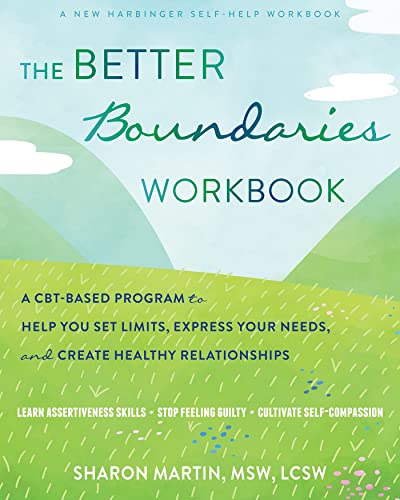
Each time there’s a new supervisor at my job, I give them The Talk.
“Hello!” I tell them. “My name is Sheila. Here is something you need to know about me — I don’t work past 9 p.m. I have bipolar disorder. I need stable sleep patterns or I could wind up in the hospital again. So, I cannot work after 9. Thanks!”
This is one way to draw a mental health boundary to allow me to care for myself to keep from aggravating my condition. Boundaries are good for anybody to draw, but they’re especially important for people with mental illness.
What Are Mental Health Boundaries?
The word “boundary” means a lot of things, but for our purposes, a boundary is a rule you set for interpersonal interaction that protects you from something that is detrimental to your mental health. For example, the boundary I set with my workplace was “I can work no later than 9 p.m.” Boundaries allow you to conserve your energy for the things that actually matter, and avoid things that are not good for your mental health. Boundaries are not rigid and are certainly not one-size-fits-all. You can tell a chatty friend not to call you after 10 o’clock, but rescind that rule for your siblings, who you trust will only call you after that hour if it’s absolutely necessary.
State Your Mental Health Boundaries Clearly
The first step in setting mental health boundaries is thinking hard about exactly what they are going to be. Figure out what your needs are. Specific sleep hours? Respite from overstimulation? Dietary restrictions? Sort out what they are — write them down if you need to—and then determine what boundaries you have to draw to make fulfilling those needs easier.
The next step is to articulate those mental health boundaries to the people you encounter who have to know what your needs are. Sometimes, this might require sitting them down and having a talk with them, especially if this new boundary will require major changes to the way things have been done up to the point. Other times, it can be simple as a “No, thank you” to people who are asking you to do something that goes against those boundaries. Whichever way it is (or if it’s somewhere in between) the key is to state them as simply as you can.
My earliest iterations of The Talk were way too long and elaborate: “Hi, I’m Sheila. I can’t work past 9. Ever. I have bipolar disorder. I need stable sleep patterns. If I don’t have stable sleep patterns, I run the risk of having a mood episode. If I have a mood episode, I run the risk of going back to the hospital. Mental hospitals are not fun places. I’d really rather not go to one.”
See what I mean? You don’t have to go that detailed, and it works best if you don’t. You don’t even always need to go into why you have that boundary. “Because I need that” can suffice. In some cases (workplaces, for example) you will have to give some kind of explanation, but you don’t need to go into the excessive detail I just did up there. Explaining why can help people be more understanding, especially when you’re drawing a boundary about something that hasn’t been a big deal (for them) for a while. Knowing how not having that boundary has been detrimental to you can be an eye-opening experience for some people.
Use I-Messages
We’re often told “don’t make it all about you,” but when setting mental health boundaries, it actually helps, at least in terms of how you express yourself. “I-messages” are phrased so the individual speaking is the subject of the sentences. When I told my workplace I had to leave early, I didn’t say, “Don’t you dare make me stay after 9!” I told them “I have to leave at 9” and I was firm about it. Using I-messages puts things in your agency, and makes it harder to contradict—when you say “I feel overstimulated when that happens,” they can’t exactly fire back with, “No, you don’t!”
Enforce Your Mental Health Boundaries
Of course, setting mental health boundaries doesn’t help if you don’t enforce them. Each little nudge against them is just the camel’s nose in the tent — a little nudge becomes a bigger nudge and the next thing you know your boundaries have been trampled into the dust. If somebody presses up against your boundaries, restate them clearly and remove yourself from the situation if you have to. It doesn’t have to be elaborate — if somebody offers you a Salty Dog at a party and you can’t have alcohol or grapefruit juice because of your meds, a simple “No, thank you” will suffice. If they ask why, a simple “Because I don’t want it” is enough, and if they go beyond that you are no longer at risk for seeming rude if you turn and walk away from them. Just state your boundaries firmly, repeat them if necessary and don’t apologize for them.
Respect Other People’s Boundaries
If you’re going to draw mental health boundaries and expect them to be adhered to, you have to respect the boundaries of others. People will take your boundaries more seriously when you take theirs seriously. If your boundaries conflict, then there needs to be negotiation so that both people’s needs can be met. But if they refuse to compromise — especially if the boundaries they state are suspiciously custom-fit to plow over yours — you can reasonably draw yours firmly and without apology.
When you’re living with mental illness, you will have certain needs that must be met to maintain a balanced life. Establishing interpersonal boundaries can help you get those needs met and make it easier to handle your condition. They can even improve your relationships with people, since they’ll know what they can do to best help you. Know your needs and set your boundaries around them. You’ll find your mental illness a lot more manageable when you do.
Learning to Set Mental Health Boundaries – Book Recommendations
Setting mental health boundaries isn't easy, so if you need a bit of help figuring out what you need and how to develop your self-advocacy skills, these books, recommended by The Ability Toolbox staff, may help.
As an Amazon associate, we earn from qualifying purchases.
Photo by leonie wise on Unsplash













